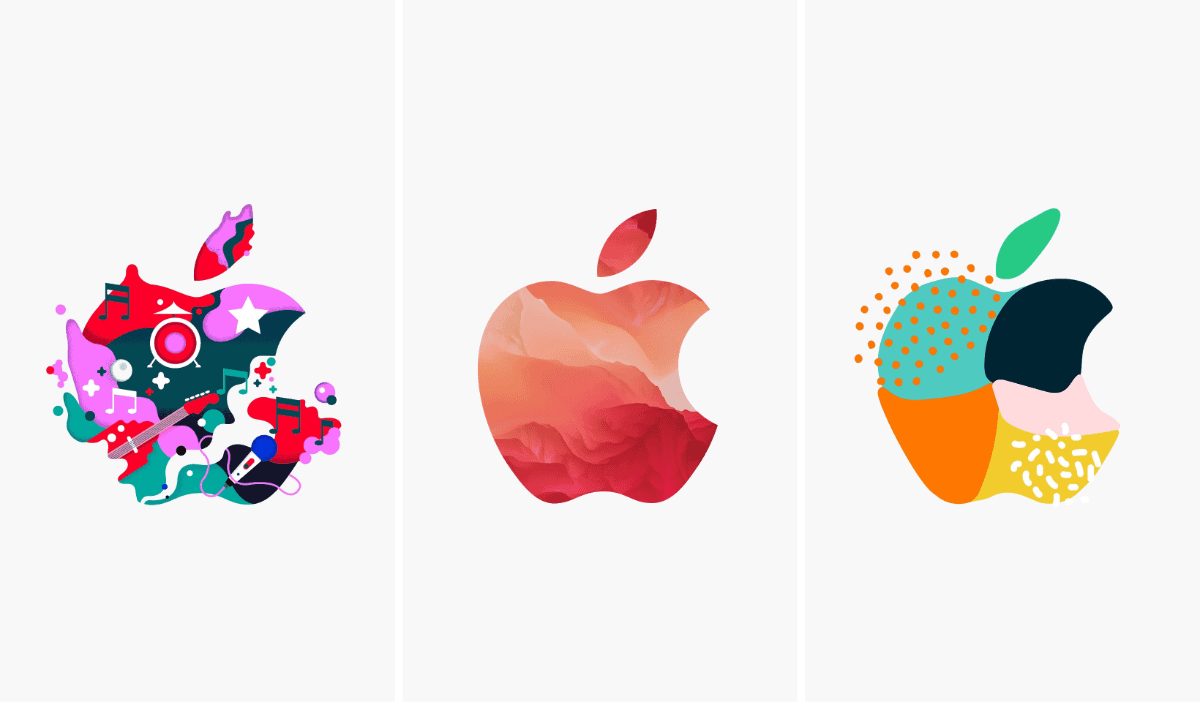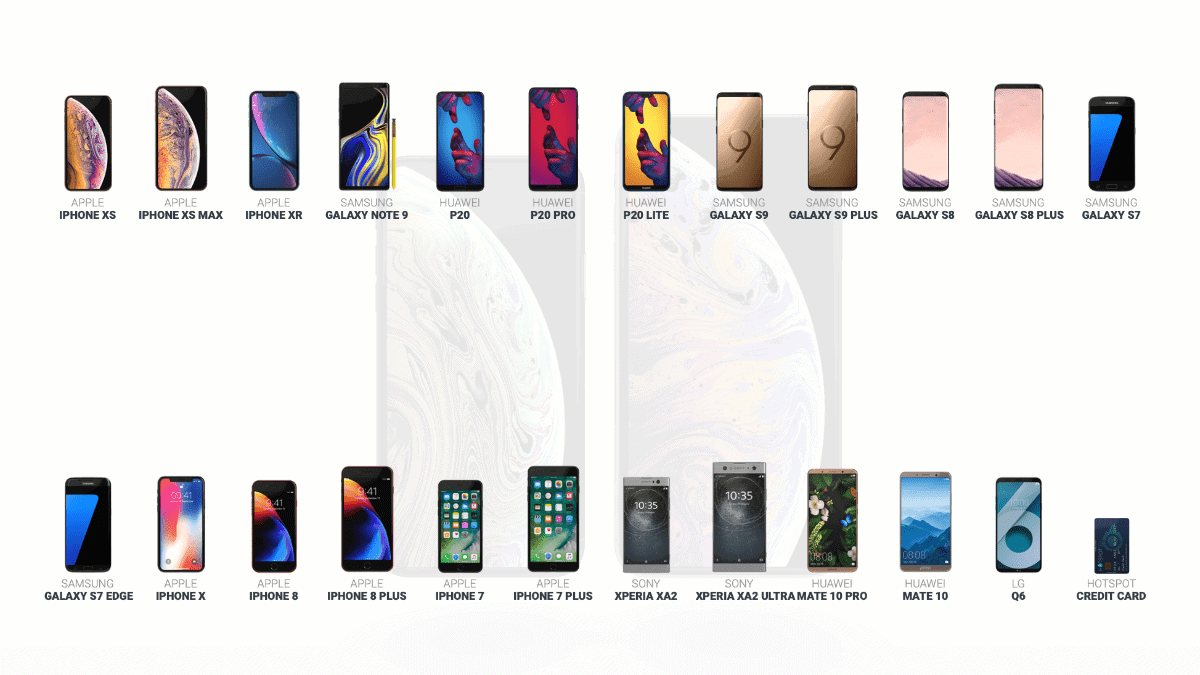Work experience programs like this are legal, but they do have limitations based on the number of working hours.
Articles by Andrew Orr
Here's a Wallpaper Generator Shortcut For Those Apple Logos
Redditor u/wexford001 made a neat wallpaper generator shortcut. It uses the Apple logos (all 370 of them) that Apple created for tomorrow’s event. Every time you tap the shortcut it generates a random image based on your device. There are both white and black versions, in case you have an iPhone with an OLED screen.
All the code to actually get the image from imgur was the work of u/hinapupina in his “imgur downloader” shortcut. I modified it a bit, but i don’t understand it well enough to have done this on my own. Thanks!
You can download the shortcut for white wallpapers here, and the black version here.
PSA: Maybe You Shouldn't Change Apple Watch Region Settings
A workaround that many blogs are telling readers is to change the Apple Watch region settings. But this is a pain in the a$$.
Rich People are Banning Screens in Classrooms
Rich people are banning screens in classrooms, in a surprising turn in the digital divide debate.
It wasn’t long ago that the worry was that rich students would have access to the internet earlier, gaining tech skills and creating a digital divide…But now, as Silicon Valley’s parents increasingly panic over the impact screens have on their children and move toward screen-free lifestyles, worries over a new digital divide are rising. It could happen that the children of poorer and middle-class parents will be raised by screens, while the children of Silicon Valley’s elite will be going back to wooden toys and the luxury of human interaction.
At one point when I was growing up, my dad got rid of the television because us kids were glued to it. I didn’t like it then, but looking back I think it was a good decision. And I’ve already written about how kids are being raised by YouTube.
How to Tell if Your Congressman Supports Net Neutrality
Polls show that net neutrality will be an issue for voters in upcoming midterm elections. But how can you find out if your congressman supports net neutrality?
Feds Say It's Legal to Hack DRM to Fix Your Devices
In a new decision, the Librarian of Congress and U.S. Copyright Office proposed new rules that make it legal to hack DRM to fix your electronic devices.
The move is a landmark win for the “right to repair” movement; essentially, the federal government has ruled that consumers and repair professionals have the right to legally hack the firmware of “lawfully acquired” devices for the “maintenance” and “repair” of that device. Previously, it was legal to hack tractor firmware for the purposes of repair; it is now legal to hack many consumer electronics.
This is a great decision, and although Apple opposes the right to repair, it’s a pro-consumer choice.
Belgium Apple Pay Coming in the Next Few Weeks
A Redditor claiming to work at an Apple Store in Brussels says that Belgium Apple Pay should launch in the next few weeks.
This Website Lets you Compare Smartphones in 3D
A website called Hotspot 3D lets you compare smartphones in 3D. It’s really neat because you can compare different iPhone and Android models to give you an idea of how they compare in terms of size. The phones are displayed side by side and you can spin them every which way around. The available iPhones are: iPhone 7/7 Plus, iPhone 8/8 Plus, iPhone X/XS/XS Max, and iPhone XR. The Android phones are: Samsung Galaxy S7/S7 Edge, Samsung Galaxy S8/S8 Plus, Galaxy S9/S9 Plus, Samsung Galaxy Note 9, Huawei P20/P20 Lite/P20 Pro, Sony Xperia XA2/XA2 Ultra, Huawei Mate 10/Mate 10 Lite/Mate 10 Pro, and the LG Q6. You can also compare every phone to a credit card.
Pokémon GO Apple Health Integration Finally Here
It will let you earn candy and hatch eggs even when the Pokémon Go app isn’t running.
U.S., China, and the AI Cold War
When Google’s AlphaGo system beat Chinese players at the game twice, this set off a sort of AI cold war between China and the United States.
On October 18, 2017, China’s president, Xi Jinping, stood in front of 2,300 of his fellow party members, flanked by enormous red drapes and a giant gold hammer and sickle. As Xi laid out his plans for the party’s future over nearly three and a half hours, he named artificial intelligence, big data, and the internet as core technologies that would help transform China into an advanced industrial economy in the coming decades. It was the first time many of these technologies had explicitly come up in a president’s speech at the Communist Party Congress, a once-in-five-years event.
Rare Inside Look at Apple News Human Curation
Ms. Kern is a former executive editor of New York Magazine. Working with her team, they hand pick the top stories of the day to feature in the Apple News app.
Government is Outsourcing Surveillance to Silicon Valley
Sean Captain writes about a report that shows how the government is increasingly outsourcing surveillance to Silicon Valley companies.
While Amazon plays the leading role, the report also details the involvement of companies including Peter Thiel’s Palantir, NEC, and Thomson Reuters in storing, transferring, and analyzing data on both undocumented residents and U.S. citizens.
“There is a transfer of discretion and power from the public sector to the private sector in the form of these contracted technological services,” says Shankar Narayan, director of the Technology and Liberty Project at the ACLU in Washington State, which was not involved in the report.
The future sounds more dystopian every day.
Russia, China Are Spying on Trump's Insecure iPhone
U.S. intelligence agencies discovered that Russia and China are spying on conversations President Trump has on his insecure iPhone.
Mr. Trump’s aides have repeatedly warned him that his cellphone calls are not secure, and they have told him that Russian spies are routinely eavesdropping on the calls, as well. But aides say the voluble president, who has been pressured into using his secure White House landline more often these days, has still refused to give up his iPhones. White House officials say they can only hope he refrains from discussing classified information when he is on them.
Inflamed by Russian bots, an issue during the 2016 election was Hillary Clinton’s personal email server, because there was a possibility it could be compromised. Now we find that Trump’s iPhone has confirmed to be compromised.
Apple Blocked GrayKey, Possibly Through Reverse Engineering
Apple has blocked GrayKey, an iPhone hacking device used by law enforcement. The company designed iOS 12 with protection against it.
Google Adds Privacy Controls in Search
Google will start showing privacy controls on its search page, instead of forcing users to navigate their My Activity page.
Google calls the new feature Your Data, and has experimented with offering information about data privacy in different formats like video, illustrations, and text. The idea, Miraglia says, is to help as many users as possible understand what data a service collects, why, and what controls are available.
I think it’s a good move by Google, but like Douglas Schmidt said in the article: “It never hurts for people to be reminded that their online activities are being monitored, but I’m not sure it would make anybody feel better about what’s being done with it.”
Apple Customers are Linked to Saudi Arabian Business Interests
Mr. Silver says that because Apple wouldn’t have much to lose, the company should stop all plans with the country and pull out as others have done.
Fiber Optic Breakthrough Could Make Internet 100X Faster
Researchers have had a fiber optic breakthrough, and it could significantly speed up existing networks and boost efficiency. The secret is twisted light.
Fibre optic cables use pulses of light to transmit information, but currently information can only be stored through the colour of the light, and whether the wave is horizontal or vertical.
By twisting light into a spiral, engineers effectively create a third dimension for light to carry information: the level of orbital angular momentum, or spin. “It’s like DNA, if you look at the double helix spiral,” said Min Gu from RMIT University. “The more you can use angular momentum the more information you can carry.”
I wonder how much current ISPs would throttle this 100X faster internet?
This VPN App Claims to Act as an iOS Firewall
It’s currently in closed beta and will be released in December.
Tim Cook Says Data Mining is Weaponized Against Us
At a privacy conference in Brussels, Belgium Tim Cook spoke about privacy, saying that data mining is weaponized against us.
Bloomberg Spy Chip Piece Doesn't Pass Peer Review
With the famous Bloomberg spy chip article, other news organizations have attempted to copy Bloomberg’s research. But they haven’t gotten the same results.
According to a company source, editorial staff has been “frustrated” that competing news organizations haven’t managed to match the scoop. Sources tell the Erik Wemple Blog that the New York Times, the Wall Street Journal and The [Washington] Post have each sunk resources into confirming the story, only to come up empty-handed.
In science, peer review is an important part of scientific research. If other scientists follow the exact methodology you used, and they get the same results, your experiment is valid. But if they don’t get the same results, there is something wrong with your experiment.
Apple Ads in App Store, News, Worth Billions
Apple’s Search Ad business (App Store) alone could be worth US$2 billion by 2020.
8 Advanced Photo Editing Techniques for iPhone
Gizmodo has a great list of 8 advanced photo editing techniques for the iPhone.
You might already be familiar with the quick fixes you can apply to your pictures after you’ve snapped them, right on your phone—but if you want to take your mobile photo editing to the next level there are tools and apps that can help here too.
The editing techniques include: Combining photos together (compositing), removing objects from photos, adjusting the depth of field, adjusting white balance, brightening shadows, healing, correcting image distortion, and photo pixelation.
Get These Halloween Movie Bundles on iTunes
There are also non-horror bundles on sale as well, like Lord of the Rings, a bunch of Dreamworks movies, Batman, Twilight, etc.
Companies Should Have a Chief Ethics Officer
Who will teach ethics to Silicon Valley? Kara Swisher asks this in her column for The New York Times. A title of Chief Ethics Officer should become the norm.
Grappling with what to say and do about the disasters they themselves create is only the beginning. Then there are the broader issues that the denizens of Silicon Valley expect their employers to have a stance on: immigration, income inequality, artificial intelligence, automation, transgender rights, climate change, privacy, data rights and whether tech companies should be helping the government do controversial things. It’s an ethical swamp out there.
I think the answer to this is US. It’s up to American citizens to elect responsible politicians who will “nudge” corporations into having ethical and privacy standards.


